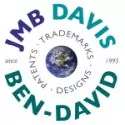Israel Patent Office Claims Practice In Materials, Chemical And Pharmaceutical Cases ~ Part I
Types of claims
In general, claims to the following types of subjects are prima facie allowable, in addition to "use" claims which will be discussed as a special topic in Part II.
(1) New chemical compounds (whether monomeric or polymeric), chemical compositions and new materials, including those of interest in the field of biotechnology (polypeptides, genes, antibodies, etc.), as well as constructs which depend on use of specified materials, such as laminates.
In the case of compositions, it is of course a requirement that all components be defined and that a combination of known components has some previously unknown property, so that it is not merely a collocation of known integers (this principle was reaffirmed in the computer-related case, Appeal No. 23/94 as described in our June 1997 bulletin).
(2) Processes for preparing or manufacturing new compounds, compositions or materials, or new processes for preparing or manufacturing known compounds, compositions or materials. Such processes may be chemical processes of the classical type, or they may be e.g. biotechnological processes, or processes otherwise harnessing animal, botanical or microbiological systems provided that the human body is not so used.
(3) Apparatus specially adapted for preparing or manufacturing new compounds, compositions or materials, or new apparatus for preparing or manufacturing known compounds, compositions or materials.
(4) Processes for using new compounds, compositions or materials, or new processes for using known compounds, compositions or materials; the general criteria apply as stated in paragraph (2), above.
(5) Further medical uses of known medicaments (details will be provided in Part II), but, as stated in Section 7(1) of the Patents Law, ".....no patent shall be granted for a method of therapeutic treatment of the human body."
(6) Microorganisms "not derived from nature". (Israel has acceded to the Budapest Treaty with effect from April 26, 1996.)
(7) Methods of treating non-human animals.
Practice relating to the examination of claims in the field of structural Organic Chemistry. For a period before April, 1992, terms such as ‘aryl’, ‘heteroaryl’, ‘acyl’, ‘aliphatic residue’, ‘rings containing 5 or 6 carbon atoms and including nitrogen, oxygen and/or sulfur’ and the like, were in principle not permissible, because they were considered too general, i.e. insufficiently definitive. While from April 1992, such terms became permissible in principle, the Examiner can still require that terms of this kind be defined with as much precision as is possible, in particular cases.
In view of the very broad range of compounds frequently encompassed by claims which employ such terms, the Examiner is entitled to search only what he regards as the principal categories, and will inform the Applicant in which areas, in relation to classes of the International Patent Classification, the search has been made.
Unity of Invention
According to Section 8 of the Patents Law, 1967, "A patent shall be granted for one invention only." This requirement is interpreted in two different ways. From a purely formal aspect, it is considered that a large number of independent claims obscures unity of the invention, and such claims would therefore usually be rejected under Section 8. As a rule of thumb, a maximum of four, or sometimes five, independent claims is considered adequate for the purpose of defining one invention, although if the circumstances warrant a greater number of independent claims may be permissible in exceptional cases. (These principles are of course not restricted to chemical subject- matter.)
From a substantive point of view, the following combinations of independent claims (not unlike EPC Implementing Regulations, Rule 30 and PCT Regulations, Rule 13.2) are examples of what would probably be prima facie allowable in a single patent application:
(1) a new product and processes for preparing or manufacturing it, and for using it (excepting a process for medical use in relation to humans); and a composition including the new product; or
(2) a new process and apparatus specially adapted for putting it into effect; or
(3) a new product, a process for preparing or manufacturing it, and apparatus specially adapted for putting the process into effect.
[The allowability of the combination of independent claims in Category (3) would probably depend on the relation of the definitions in process and apparatus claims.]


